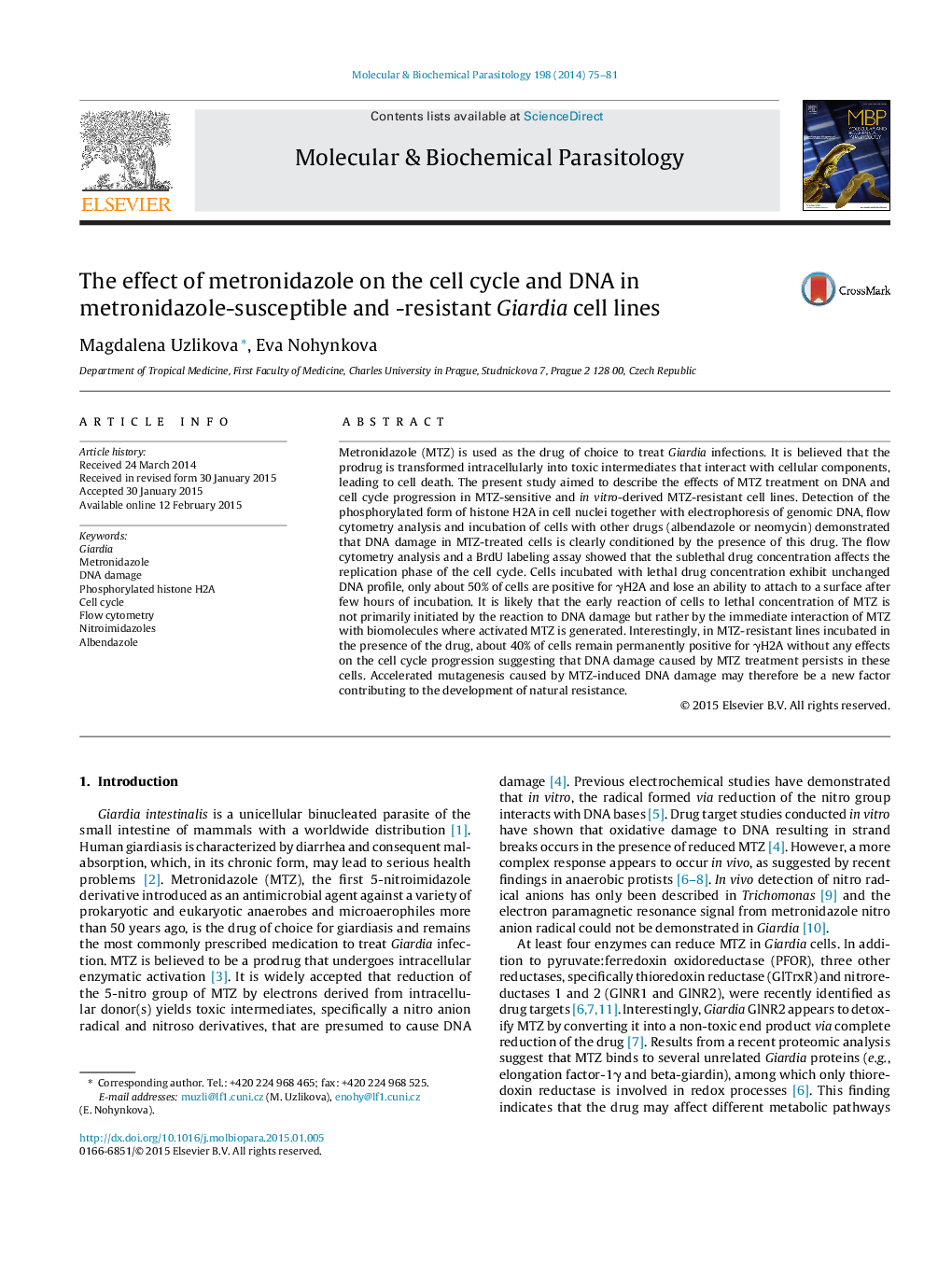| کد مقاله | کد نشریه | سال انتشار | مقاله انگلیسی | نسخه تمام متن |
|---|---|---|---|---|
| 2829740 | 1163285 | 2014 | 7 صفحه PDF | دانلود رایگان |

• Treatment of Giardia cells with metronidazole leads to phosphorylation of H2A.
• Characteristics of treated cells indicate that metronidazole is DNA damaging agent.
• Metronidazole elicits DNA damage as one of pleiotropic effects of MTZ.
• MTZ-resistant lines are highly positive for H2A phosphorylation.
• Persisting damage in MTZ-resistant lines may contribute to resistance development.
Metronidazole (MTZ) is used as the drug of choice to treat Giardia infections. It is believed that the prodrug is transformed intracellularly into toxic intermediates that interact with cellular components, leading to cell death. The present study aimed to describe the effects of MTZ treatment on DNA and cell cycle progression in MTZ-sensitive and in vitro-derived MTZ-resistant cell lines. Detection of the phosphorylated form of histone H2A in cell nuclei together with electrophoresis of genomic DNA, flow cytometry analysis and incubation of cells with other drugs (albendazole or neomycin) demonstrated that DNA damage in MTZ-treated cells is clearly conditioned by the presence of this drug. The flow cytometry analysis and a BrdU labeling assay showed that the sublethal drug concentration affects the replication phase of the cell cycle. Cells incubated with lethal drug concentration exhibit unchanged DNA profile, only about 50% of cells are positive for γH2A and lose an ability to attach to a surface after few hours of incubation. It is likely that the early reaction of cells to lethal concentration of MTZ is not primarily initiated by the reaction to DNA damage but rather by the immediate interaction of MTZ with biomolecules where activated MTZ is generated. Interestingly, in MTZ-resistant lines incubated in the presence of the drug, about 40% of cells remain permanently positive for γH2A without any effects on the cell cycle progression suggesting that DNA damage caused by MTZ treatment persists in these cells. Accelerated mutagenesis caused by MTZ-induced DNA damage may therefore be a new factor contributing to the development of natural resistance.
Figure optionsDownload high-quality image (199 K)Download as PowerPoint slide
Journal: Molecular and Biochemical Parasitology - Volume 198, Issue 2, December 2014, Pages 75–81